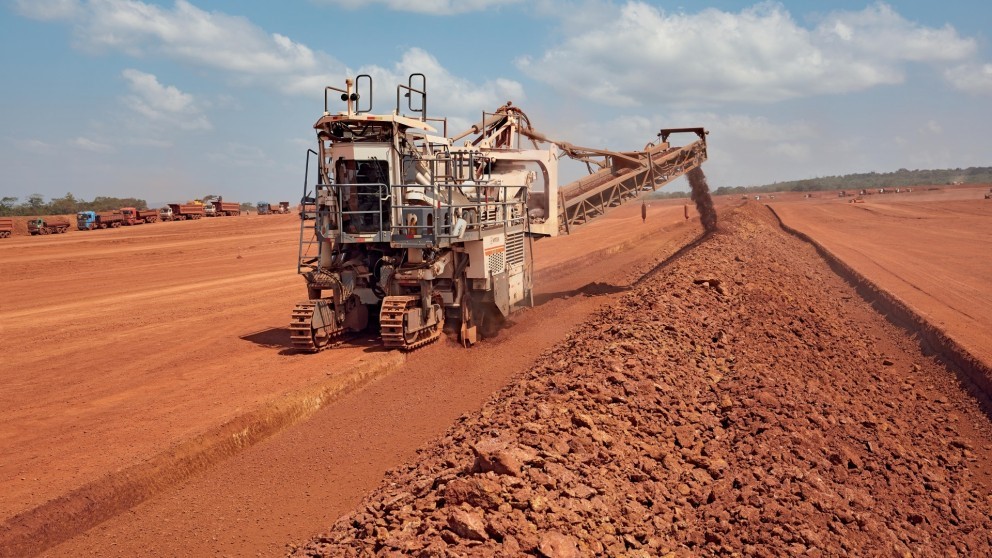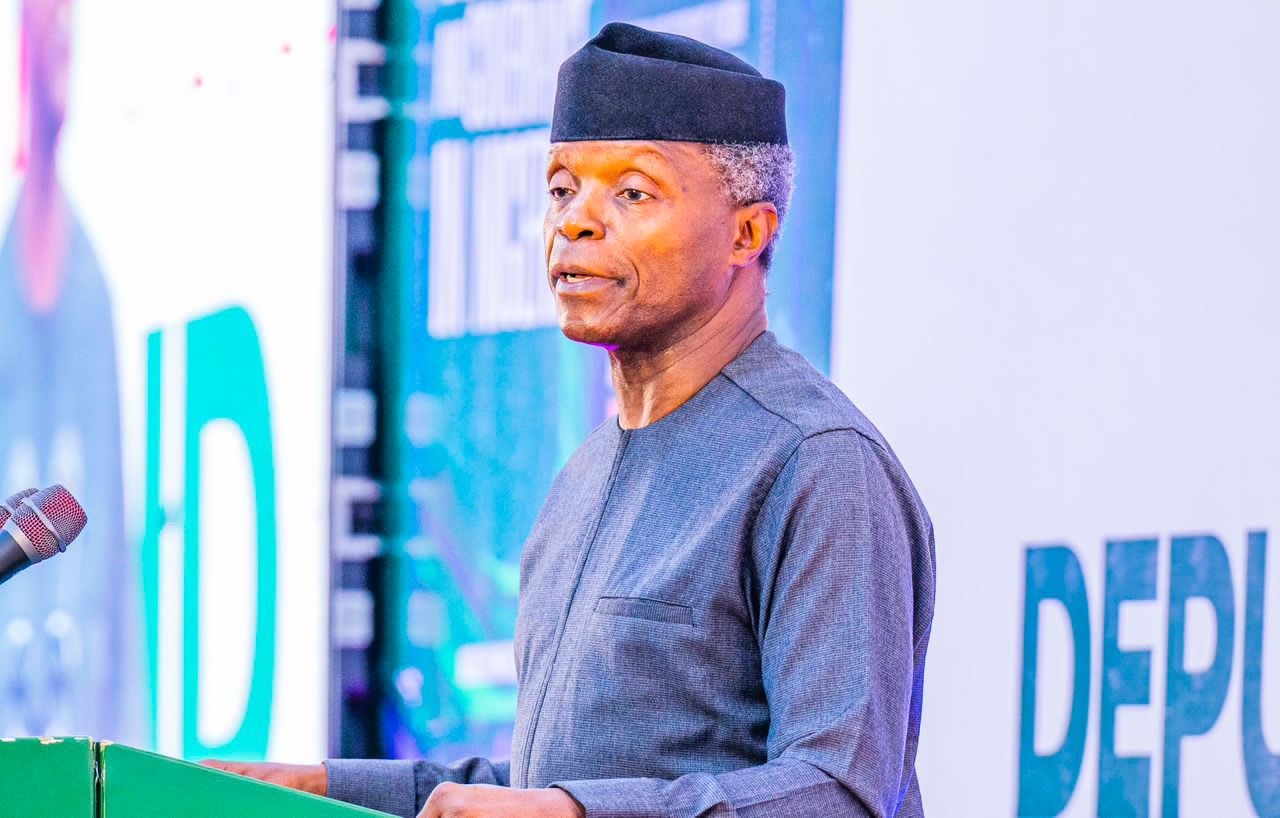

Yemi Osinbajo, the former Vice President of Nigeria, the largest economy in Africa with a GDP of $477.38 billion, contends that by prioritising renewable energy resources, both Nigeria and the broader African continent could potentially slash energy expenses by 30 per cent and significantly decrease carbon emissions by 90 per cent.

Yemi Osinbajo, serving as the global advisor for the Global Energy Alliance for People and Planet (GEAPP), emphasised key points during his address, aptly titled, “Climate Positive Growth: Africa as a Climate Action Partner for the UAE And the World,” at the New York University (NYU), Abu Dhabi Campus, UAE.
The GEAPP stands as a global organisation dedicated to assisting the international community in achieving crucial climate objectives over the next decade. The former university lecturer, Osinbajo, outlined four prerequisites for achieving climate-positive growth and establishing a green industrial hub on a global scale. He emphasised the importance of African nations directing their economic growth and development strategies toward environmentally sustainable opportunities.
Bauxite processing in Africa with renewable energy promotes social development and cuts carbon emissions
He suggested that if Africa were to process the 25 per cent of global bauxite production it mines into aluminium using renewable energy before exporting, the continent could potentially save 335 million tonnes of CO2 annually. Additionally, this approach could lead to the creation of 280,000 jobs and generate an extra $37 billion in revenue for Africa.
Furthermore, by proactively harnessing its renewable energy resources, Africa has the potential to provide energy to its entire population, addressing the needs of the 600 million individuals currently without access and the 150 million with unreliable access. This strategy could be achieved at a 30 per cent lower cost and with over 90 per cent lower emissions per kilowatt-hour (KWH) compared to the current stated policy.
The former Vice-President said, “Africa’s renewable energy is abundant and has very low seasonality, or intermittency, which makes it possible to provide renewable base-load, to power continuous industrial production reliably. Strikingly, the lowest-cost set-up of solar, wind, and battery storage to get a reliable base load to the power industry is twice as expensive in Germany as in Nigeria.
Africa: A continent with enormous untapped renewable energy capacity
Osinbajo argued that African nations' economic growth and development strategies should prioritise green opportunities. He emphasised the importance of aligning policies and regulations to facilitate green industrialisation.
Highlighting that Africa possesses 60 per cent of the world's optimal solar resources, along with abundant wind, geothermal, and hydro potential, Osinbajo pointed out that the continent's untapped renewable energy capacity is 50 times greater than the projected global electricity demand for 2040.

Osinbajo said, “In other words, Africa is perhaps the only region today, ironically on account of its low development base, that can truly achieve green growth and economic growth without growing emissions, or even keeping emissions constant, but actively addressing the reduction of emissions and the concentration of greenhouse gases in the atmosphere.”
He advocated for a fair and just market entry to satisfy the worldwide need for environmentally friendly goods, services, and carbon credits. Given the existing rate of 50 cents to a few dollars per tonne in the voluntary carbon market, the former second-in-command of Nigeria asserted that producing high-quality credits under such conditions was practically unattainable.
Costs of developing a project
"Price needs to cover the costs of developing a project, generating and trading the credit, conducting proper monitoring and evaluation, paying taxes and generating viable returns for all stakeholders involved, from local communities to project developers to the providers of risk capital", he added.
Regarding financing, he mentioned that in order to secure the appropriate amount of capital, given the persistently high cost of capital in Africa, African governments end up paying five times the interest in the bond market compared to what they would pay if the multilateral development banks were adequately capitalised.
"The cost of borrowing for African countries is probably the highest of any region. Those seeking investments for private projects face high costs of capital and unhelpfully short tenures, driven by both real and perceived risk factors," he illustrated.
Addressing this issue demands a comprehensive set of actions, encompassing fulfilling previous commitments, the effective implementation of the Loss and Damage Fund established during COP27 last year, and the dedication to providing $100 billion annually in climate finance for developing nations.
Additionally, he emphasised the need to revamp the international financial system, focusing on directing a greater portion of resources to emerging and frontier economies. The goal is to channel more investments towards initiatives aligned with climate objectives.
Technology and financing can change Africa’s mining economy
The future of Africa's mining economy holds tremendous promise, poised for transformation through the synergistic impact of advanced technology and innovative financing models. These innovations optimise production and contribute to environmental conservation and worker safety. Concurrently, new financing mechanisms, including blockchain-based solutions and sustainable investment frameworks, are reshaping the funding landscape for African mining projects. These financial innovations facilitate transparent transactions, mitigate risks, and attract responsible investments, fostering a more resilient and equitable mining sector. The convergence of cutting-edge technology and progressive financing approaches empowers African nations to unlock the full potential of their mineral resources and pave the way for a sustainable and socially responsible mining future on the continent.
Responses








